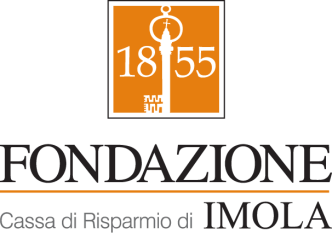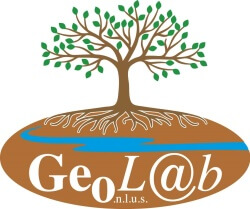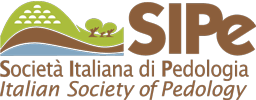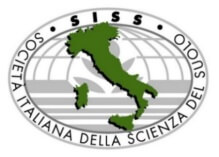Operators’ perceptions of abattoir waste management: evidence from a semi-urban Nigerian city
DOI:
https://doi.org/10.6092/issn.2281-4485/11744Abstract
This study appraises abattoir operators’ perceptions of waste management at Ijebu Igbo Abattoir in Ogun State, Nigeria. Random sampling technique was used to collect primary data from 127 abattoir operators and data obtained were complemented with field observation. Data were analysed using both descriptive and inferential statistics. Major findings reveal that abattoir operation is male-dominated (57%) with considerable youth involvement. Findings also reveal that current waste management practices at the abattoir were unsatisfactory. It was found out that recycling of abattoir waste is yet to be fully harnessed despite the existing potentials. Chi-square (χ2) tested result established a statistically significant relationship between abattoir operators’ socio-demographic characteristics and their perceptions of waste collection effectiveness. Finally, the study presents suggestions for sustainable abattoir waste management at the Ijebu Igbo Abattoir and facilities with similar attributes.
References
ABDULLAHI A., KADARMAN, N., HASSAN, A., MADOBI. I. S. (2015) Negative impact of abattoir activities and management in residential neighbourhoods in Kuala Terengganu, Malaysia. International Journal of Public Health Science, 4(2): 124-130.
ADEBOWALE, O. O. (2019) Waste management and practices in a slaughterhouse in Abeokuta Nigeria. Case Study, implications and alternative methods. Sokoto Journal of Veterinary Medicine, 17(3): 52-55.
ADEMOLA, I. T. (2019) An assessment of abattoir waste management in Ogun state. BSc. Dissertation, Olabisi Onabanjo University, Nigeria.
ADEOLU, A. T., OPASOLA A. O., SALAMI, O. O., IYANDA, A. Y., OMENTA, R. C. (2019) Sanitary status and compliance with the standard slaughter practices in Karu abattoir Abuja municipal area council of the FCT, Nigeria. International Journal of Current Innovations in Advanced Research, 2(2): 1-14.
ADZAWLA, W., TAHIDU, MUSTAPHA, S., AZUMAH, S. B., (2019) Do socioeconomic factors influence households’ solid waste disposal systems? Evidence from Ghana. Waste Management & Research, 37(1): 51-57. DOI:10.1177/0734242X18817717
AKANNI, A., OGBIYE, A., ONAKUNLE, O. (2019) The Impact assessment of abattoir waste facility discharge on water in Osogbo, Nigeria. Cogent Engineering, 6(1): 1614317. https://doi.org/10.1080/23311916.2019.1614317
AKINDELE, S. T., ABIMBOLA, W. A., OLUWABIYI, B. A., JOKOTAGBA. O. A., AGBOLADE, O. M., SAM-WOBO, S. O. (2015) Microbiological assessment of waste-water and soil in Ijebu-Igbo abattoir, Southwest, Nigeria. International Journal of Advancements in Research & Technology, 4(10): 1-12.
AKINSULU, A. A., AJIJOLA, S., ODETOLA, S. K., AWOYEMI, D. O. (2019) Factors influencing meat consumption in Ijebu-North local government area of Ogun States, Nigeria. Journal of Marketing and Consumer Research, 52: 10-16. DOI: 10.7176/JMCR
BADEJO, B. A. (2014) Transporting the future today: Portrait of Nigeria. 65th Inaugural Lecture delivered at Olabisi Onabanjo University, Ago-Iwoye, Ogun State, Nigeria, 2014. Ago-Iwoye: Mass Communication Press, Olabisi Onabanjo University.
BANDAW, T., HERAGO, T. (2017) Review on abattoir waste management. Global Veterinaria, 19(2): 517-524. DOI: 10.5829/idosi.gv.2017.517.524
BELLO, Y. O., OYEDEMI, D. T. A. (2009) The impact of abattoir activities and management in residential neighbourhoods: A case study of Ogbomosho, Nigeria. Journal of Social Science, 19(2): 121-127.
DADA, O. T., ODUFUWA, B. O., BADIORA, A. I., HAFEEZ, I. A., OGUNSEYE, N. O., OMONIYI S. S. (2020) Environmental hazard and health risks associated with slaughterhouses in Ibadan, Nigeria. Environmental Hazards.
DOI: 10.1080/17477891.2020.1747382
DARAMOLA, O.P., OLOWOPOROKU O.A. (2017) Living with a Fatal Choice: Effects of Slaughterhouse Activities on Residents’ Health in Osogbo, Nigeria. International Journal of Environmental Problems, 3(1): 26-35. DOI: 10.13187/ijep.2017.1.26
EKPO, C. G. (2019) Environmental problems associated with abattoir operations in Gwagwalada area council, Federal Capital Territory, Abuja. Advances in Social Sciences Research Journal, 6(3): 215-226. DoI:10.14738/assrj.63.6089
EZEOHA, S. L., UGWUISHIWU, B. O. (2011) Status of abattoir wastes research in Nigeria. Nigerian Journal of Technology, 30(2): 143-148.
FADARE, S. O., AFON, A. O. (2010) Waste handling practices at abattoirs: Experience from Ile-Ife, Nigeria. The Lagos Journal of Environmental Studies, 7(2): 51-57.
FEARON, J., MENSAH, S. B., BOATENG V. (2014) Abattoir operations, waste generation and management in the Tamale metropolis: Case study of the Tamale slaughterhouse. Journal of Public Health and Epidemiology, 6(1): 14-19.
FRANKE-WHITTLE, I. H., INSAM, H. (2013) Treatment alternatives of slaughterhouse wastes, and their effect on the inactivation of different pathogens: A review. Critical Review in Microbiology, 39(2): 139-151. DOI: 10.3109/1040841X.2012.694410
ISRAEL, G. D. (2003) Determining sample size. IFAS Extension, University of Florida.
KROSNICK, J. A., PRESSER, S. (2009) Question and questionnaire design. In J. D. WRIGHT MARSDEN, P. V. (Eds), Handbook of survey research (2nd ed.). San Diego, CA: Elsevier.
KUMAR, R. (2011) Research methodology: A step-by-step guide for beginners. London: SAGE Publications Ltd.
LAKIOTI E.N., MOUSTAKAS K., KOMILIS D.P., DOMOPOULOU A.E., KARAYANNIS V.G. (2017) Sustainable solid waste management: Socio-economic considerations. Chemical Engineering Transactions, 56: 661-666. DOI:10.3303/CET1756111
MASSE, D. I., MASSE, L. (2000) Characterization of wastewater from hog slaughterhouses in Eastern Canada and evaluation of their in-plant wastewater treatment systems. Canadian Agricultural Engineering, 42(3): 139-146.
NEBOH, H. A., ILUSANYA, O. A., EZEKOYE, C. C., ORJI, F. A. (2013) Assessment of Ijebu-Igbo abattoir and its impact on the ecology of the receiving soil and river. IOSR Journal of Environmental Science, Toxicology and Food Technology, 7(5): 61-67.
OBIDIEGWU, C. S., CHINEKE, H. N., UBAJAKA, C. N., ADOGU, P. O. U. (2019) Public health challenges in Somachi main abattoir Owerri, Nigeria: A review and field activity report. EJMED, European Journal of Medical and Health Sciences, 1(2): 1-7.
ODUGUWA, B. O., RAIMI, C. O., TALABI, A. O., SOGUNLE, O. M. (2013) Fetal losses from slaughtering pregnant cows at Lafenwa abattoir in Abeokuta, South Western Nigeria. Global Journal of Biology, Agriculture & Health Science, 2(2): 38-41.
OFFICHA, M. C., ONWUEMESI, F. E., NZEWI, D. C. (2018) Impact of abattoir on environment in Igbo-Etiti local government area of Enugu State. International Research Journal of Biotechnology, 5(1): 10-14.
OGUN STATE GOVERNMENT (2008) Ogun State Regional Plan (2005-2025) Final Report. Lagos: CPMS Limited; 2008.
OMOLE, D. O., OGBIYE, A. S. (2013) An evaluation of slaughterhouse wastes in south-west Nigeria. American Journal of Environmental Protection, 2(3): 85-89.
ORUONYE, E. D. (2015) Challenges of abattoir waste management in Jalingo metropolis, Nigeria. International Journal of Research in Geography, 1(2): 22-31.
OYEKUNLE, M. A., OLUBANJO, O. O., FASINA, O. E. (1992) Foetal wastage in abattoirs and its implications: Situation report from Ogun State, Nigeria. Nigerian Journal of Animal Production, 19: 57-63.
YIN, R. K. (2009) Case study research: Design and methods (4th ed). Los Angeles: SAGE Publications, Inc.
YUSOF, M. B. M., OTHMAN, F., HASHIM, N., ALI, N. C. (2002) The role of socio-economic and cultural factors in municipal solid waste generation: A case study in Taman Perling, Johor Bahru. Jurnal Teknologi, 37(1): 55–64.
Downloads
Published
How to Cite
Issue
Section
License
Copyright (c) 2021 Nathaniel Oluwaseun Ogunseye

This work is licensed under a Creative Commons Attribution-NonCommercial 3.0 Unported License.









